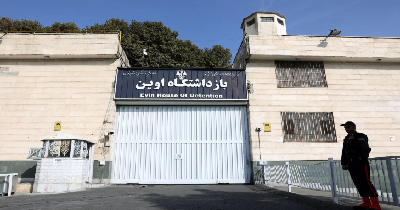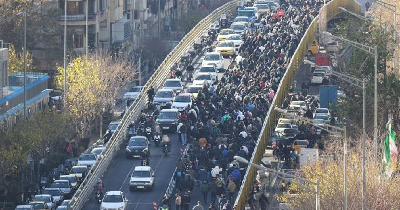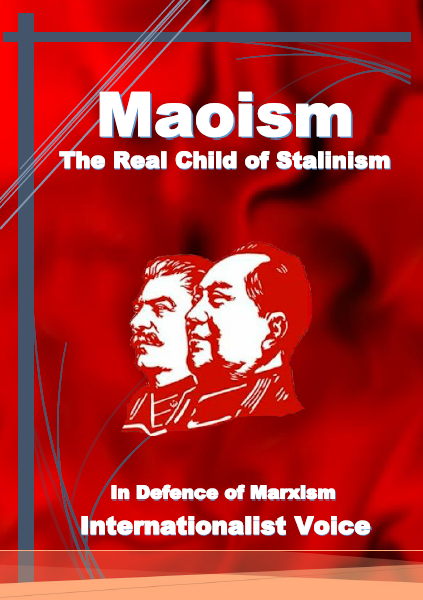From a Ten-Million-Dollar Bounty on His Head to the Red Carpet at the Élysée
There was a time when concepts such as human rights, human dignity, freedom, civil liberties, and the fight against terrorism served as ideological masks for advancing the imperial interests of Western democracies. However, these masks – particularly following the complicity of Western democracies in the genocide in Gaza – have lost much of their former effectiveness. The same states that once justified their interventionist policies under the guise of defending human rights are now increasingly exposed before global public opinion. Today, they no longer veil their imperial ambitions behind the rhetoric of human rights, but express them openly- and in the language of banditry.[1]
In these circumstances, Western democracies offer Abu Muhammad al-Jawlani a “baptism”, erasing his past with al-Qaeda and al-Nusra Front, removing the ten-million-dollar bounty on his head, and presenting a new politician under the name of Ahmed al-Sharaa.
It is within this context that, on 7th May 2025, Ahmed al-Sharaa, a former jihadist and the current interim president of Syria, arrived in Paris for his first official visit to Europe, invited by Emmanuel Macron. Macron welcomed him at the Élysée Palace, greeting him on a red carpet — a scene that exposed the stark reality of the imperial interests and transactional dealings of Western democracies. For us, there is no fundamental difference between Macron and Ahmed al-Sharaa. The hands of the French bourgeoisie are no less stained with blood than those of the jihadists. If imperial interests demand it, Macron too will cast aside the mask of democracy and emerge as the Adolphe Thiers of his time.[2]
Unlike many EU member states, which often limit themselves to mere complaints and protests, the French bourgeoisie pursues its imperialist interests with greater clarity and determination than other imperial powers.[3] This assertive approach has repeatedly provoked reprisals and backlash from the United States and the United Kingdom. A notable example of this tension was the cancellation of Australia’s submarine contract with French companies[4] — an action that France described as a “stab in the back.” In an unprecedented move, France recalled its ambassadors from both Australia and the United States, leading to a serious diplomatic crisis between the nations.
On the surface, Lebanon may appear to be a historical and cultural partner for France. However, in reality, it is viewed as a gateway to the Middle East and a strategic point for advancing France’s imperialist interests in the region. Given Lebanon’s key importance to France, this also underscores the significance of Syria.
France is seeking to expand and consolidate its imperialist influence in the Middle East while preventing the growing influence of its rivals, such as Russia, Iran, Turkey, and even the United States. Following the reduction of the US military presence in Syria, France has endeavoured to strengthen its position in the region by deploying special forces and cooperating with Kurdish groups[5], particularly through providing military and educational assistance to these groups, which Turkey considers to be terrorist organisations. These actions have escalated tensions with Turkey and highlight France’s efforts to extend its influence in competition with regional rivals.
The invitation of Ahmed al-Sharaa to Paris, along with support for the gradual easing of sanctions, are clear examples of these efforts. It should not be forgotten that from 1920 to 1946, Syria was under French mandate. Now, in light of recent developments in the Middle East, conditions have become favourable for the renewed expansion of France’s imperialist influence in the region. This expansion will inevitably diminish the influence of other actors and may directly conflict with their imperial interests. It underscores that Syria is likely to remain a focal point of intensifying imperial rivalries, further fuelling regional tensions.
The expansion of France’s imperialist influence will undoubtedly open the door for greater involvement of French companies in Syria. For example, in May 2025, the company CMA CGM signed a 30-year contract to manage and develop the Port of Latakia. There are also indications that firms such as Total, in the oil and gas sector, and Veolia, in water and environmental management, are preparing to take part in major reconstruction projects aimed at restoring Syria’s energy, water, and environmental infrastructure. France is actively working to facilitate access for French companies to these reconstruction initiatives.
However, economic sanctions imposed by the European Union and the United States continue to pose a major obstacle to participation in Syria’s reconstruction. In this context, Emmanuel Macron has stated that, should the current trajectory in Syria persist, he would support a gradual easing of sanctions to allow France to play a significant role in the country’s reconstruction efforts.
At a joint press conference with Ahmed al-Sharaa, Macron stated that some European leaders remain hesitant about easing sanctions, emphasising that engagement with the new Syrian government is crucial. In response, Ahmed al-Sharaa assured that foreign jihadists would not pose a threat to their countries of origin. He also suggested that foreign jihadists could potentially be granted Syrian nationality, should the future Syrian constitution endorse such a solution. Al-Sharaa further asserted that, with the fall of the previous regime, there is no longer any justification for maintaining the sanctions.[6]
During Bashar al-Assad’s rule, Syria hosted various Palestinian groups. Western democracies have regarded the presence of these groups as a threat to Israel and have called for the normalisation of Syria’s relations with Israel. Meanwhile, Israel has recently occupied parts of Syrian territory and regularly conducts military operations across the country. As a result, the remnants of the Syrian army from the Assad era have been virtually destroyed, and the country’s critical infrastructure has been severely damaged due to Israel’s repeated airstrikes.
However, the new Syrian government has stated that no threat is posed to Israel by Syria, and in an attempt to gain legitimacy from Western democracies, it has initiated indirect negotiations with Israel, mediated by the United Arab Emirates, to explore the potential for a peaceful agreement. In contrast, Israel is seeking to impose its conditions on the new government through military pressure, repeated attacks, and the further expansion of its occupation.
In this context, the Trump administration has demanded that the new Syrian government expel Palestinian groups in exchange for the partial lifting of certain sanctions. In response to this pressure, recent months have witnessed signs of a crackdown on Palestinian groups such as the Popular Front for the Liberation of Palestine and Islamic Jihad in Syria.[7]
In this context, France’s efforts to expand its influence in the Middle East are part of the imperialist rivalry in an era of global capitalist decline, a period in which each power is primarily concerned with securing its own imperial interests and weakening its rivals. These imperialist policies bring neither peace, stability, nor prosperity to the people and working class of Syria, nor do they offer a solution to the country’s deepening crisis. Instead, due to conflicting interests with other imperial powers, they serve only to escalate tension and instability.
Syria has been trapped in a devastating cycle of savagery for years; a savagery directly caused by the intervention of both major and minor imperial powers, from Iran and Russia to the United States and Turkey, each seeking to secure their own imperial and geopolitical interests. The result of these interventions has been nothing but the killing and wounding of hundreds of thousands, the displacement of millions, and the intensification of ethnic, religious, and tribal conflicts.
Today, more than 90% of the Syrian population lives below the poverty line[8]. The unemployment rate has soared to around 27.75%[9], with figures for young people reported to be as high as 90%[10]. Since December 2024, following the collapse of Bashar al-Assad’s regime, the security situation in the country has deteriorated sharply, and ethnic and religious minorities have faced a new wave of violence, discrimination, and repression. Sectarian violence, targeted attacks, and state-led crackdowns have placed the lives of the Syrian people under constant threat.
The capitalist system is the root cause of disorder and suffering across the globe – Syria included. Bourgeois democracy is merely the reverse side of the same coin: a form of bourgeois dictatorship. It represents a modern, systematic barbarism. The catastrophic conditions in Syria have not only extinguished the possibility of an independent workers’ movement, at least in the short term, but have also prevented the Syrian working class – as a battalion of the global proletariat – from fulfilling its historical and social role in transforming the current situation.
This responsibility now rests heavily on the shoulders of the global working class and internationalist communists. Only through solidarity and united international struggle can the working class resist the barbarism of capitalism and open a new horizon for advancing the class struggle.
M.J.
10 May 2025
Notes:
[1] For further information, it is recommended to read the article ‘Deal or Attack? Banditry as the Strategy of the Bourgeoisie’.
[2] In 1994, amid the imperialist rivalry between France on one side, and the United States and the United Kingdom on the other, one of the most horrific genocides in African history unfolded in Rwanda. Over the course of just 100 days, approximately one million people, primarily from the Tutsi ethnic group, were brutally massacred. During this genocide, between 200,000 and 500,000 women and children were also subjected to organised sexual violence – an atrocity that remains a stain on the conscience of the world.
[3] For example, France has stated that Iran must also reach an agreement with the European Union on nuclear, missile, and other related issues.
[4] In 2016, Australia signed a contract with the French company Naval Group to build 12 diesel-electric submarines. However, in September 2021, Australia announced that it was cancelling the contract and, instead, would receive nuclear-powered submarines under the AUKUS agreement, with technology from the United States and the United Kingdom.
[7] The arrest of Palestinians in Damascus.
[10] The youth unemployment rate.
Download as PDF















